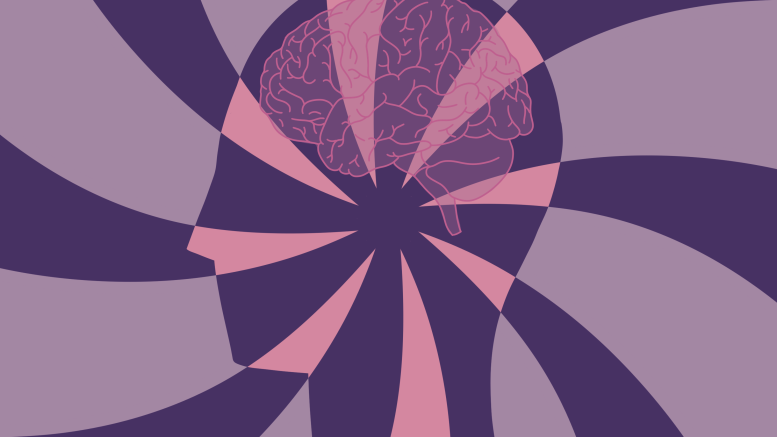25-year-old U.S. military member Aaron Bushnell died of burn injuries after self-immolating and shouting “free Palestine” in front of the Israeli embassy in Washington, D.C. on Feb. 25. Live-streaming the act on Twitch, Bushnell said prior to the burning that he was “about to engage in an extreme act of protest” over Israel’s genocide of Palestinians.
In the weeks since, hordes of columnists have scurried out of their sewer holes to armchair diagnose the man and reframe the meaning he wanted his death to have. Public discourse surrounding Bushnell’s death has indicated an urgent need for English-speaking society to re-examine popular conceptions of mental illness.
Media personality Brad Polumbo wrote in the New York Post that the public response to Bushnell’s self-immolation was “weaponiz[ing] mental health to push an agenda that [leftists] agree with.”
Accepting that Bushnell was mentally ill, what specific disorder is burning oneself to death symptomatic of? This is something that Polumbo and his ilk do not explore, waving off the gesture with the generalized, empty label of “mental health.”
Bushnell’s friend Lupe Barboza told Al Jazeera that she did not believe Bushnell was mentally ill. It was Bushnell’s own measured description of what he was about to do as “an extreme act of protest,” which indicates he understood the magnitude of his decision.
Opting to commit suicide is not inherently a sign of irrationality. In Canada, the availability of physician assisted suicide is proof enough that there are situations where people can make the decision to die in sound mind.
Self-immolation is an ancient method of suicide, stretching back thousands of years all around the world. The Indian philosopher Kalanos, who accompanied Alexander the Great, self-immolated in the fourth century BCE after falling ill.
Among a spate of self-immolations to protest the Vietnam War, Alice Herz burned herself to death in Detroit, MI. More recently, climate activist Wynn Bruce self-immolated in front of the U.S. Supreme court to protest the government’s passivity in the face of the climate crisis. These people all had different causes, but what unites them is an iron-clad belief in political issues of equal profundity and scale.
There isn’t a disorder that unifies each of the cases of self-immolation that we’ve seen around the world in the last 60 years. What evidence there is seems to suggest not that Bushnell was suffering from deep anguish, but that he believed with the strongest conviction that Israel is committing a genocide against Palestinians.
The discussions that have followed in the wake of Bushnell’s death should throw into sharp relief the fact that we do not pathologize the behaviour of people who have a hand in mass death. Where are the op-eds arguing that Joe Biden’s supporters are using mental illness to prop up an agenda? Where are the arguments that the security guard who pointed a gun at Bushnell’s prone, burning figure and shouted at him to “get on the ground” is mentally ill?
This is not to say that anyone else ought to be diagnosed with some mental illness. Rather, there seems to be situations where the public uses the general label of “mentally ill” to categorize people who disrupt the status quo in ways they don’t agree with.
The reality we find ourselves in teaches us to treat “mental health as if it were a natural fact, like weather” in theorist Mark Fisher words, rather than something that’s influenced by political forces.
In the discussion around Bushnell’s death, there is an attempt to de-politicize his actions, to redefine what he called a protest.
Using “madness” or mental illness as a scapegoat for real problems is nothing new. Philosopher Michel Foucault wrote in Madness and Civilization that “the denunciation of madness becomes the general form of criticism.” We use this criticism so we don’t have to communicate with “mad men.”
Ultimately, we slap the label of “mad” on people to pressure them to conform, and in doing so, we never have to reconcile to “the dizzying unreason of the world.”
Obviously, people who are experiencing psychological anguish are experiencing something real. Like Fisher, it was the act of diagnosing people as sick that drew Foucault’s suspicion.
Labelling people as mentally ill has long been used to ignore what are very rational reactions to injustices. In the 19th century, women were frequently diagnosed with “hysteria” after experiencing nervous breakdowns. The label explained the very real stress women felt while being subordinated to their husbands as a problem with the women themselves.
The pain these women experienced was real. But what was purely political was the way society categorized their pain.
Instead of communicating with Bushnell’s last message to make sense of the dizzying unreason of the world, people are using mental illness as a general form of criticism. And what are they criticizing? They’re criticizing a strong reaction to an atrocity.
Self-immolation to protest a nightmarish occurrence is not haphazard, irrational nor the sign of an ailing mind. If Bushnell’s actions seem disproportionate to the genocide he was speaking against, that only proves we need a complete overhaul in our thinking about mental illness.
Humans in 2024 can witness a genocide unfold from their phone screens on their daily commutes to work, swiping up to banish images showing the destruction of an entire people to sedate themselves with videos of baking recipes or married couples pranking each other. The enormity of Aaron Bushnell burning himself alive pales in comparison to the maddening apathy of a world that permits heinous violence.

